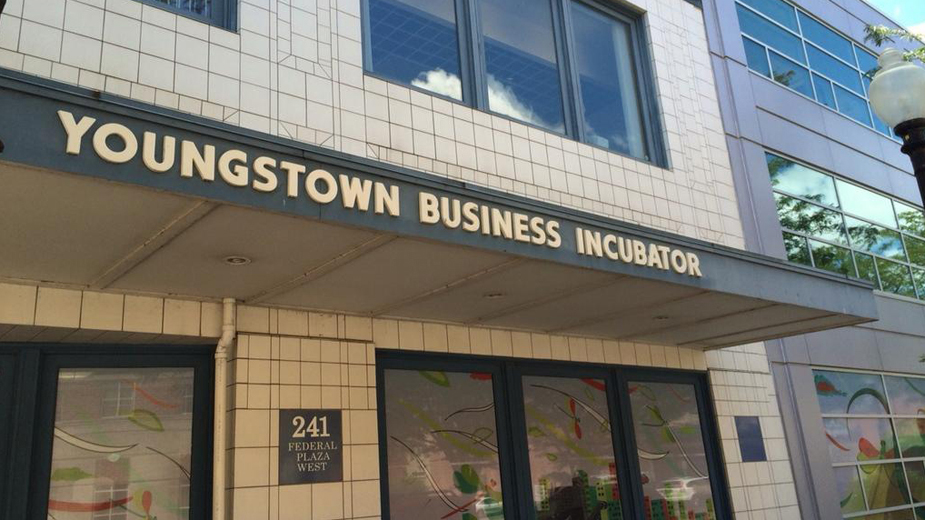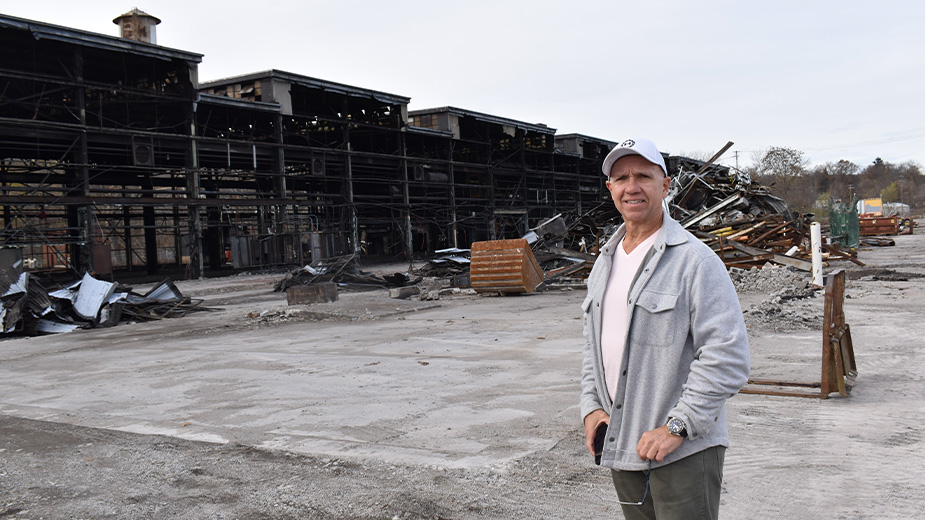Social Entrepreneurship Is YBI’s Next Startup
More familiar as the host for business-to-business software startups, the downtown Youngstown incubator wants to invite a new class of entrepreneurs into its walls – those who want to do as much good for their community as for their bottom lines.
So Good is the name of the program YBI is launching to promote social entrepreneurs. Gianna Centofanti, entrepreneurship research coordinator, is spearheading the effort.
Centofanti, entrepreneur-in-residence Jim Cossler and Brittany Housel, director of program management, have been discussing how the incubator can fill niches in the community that align with its mission of technology development.
“Social entrepreneurship is really a hot topic, and something that both Jim and Gianna are interested in,” Ewing says. “We started looking at options, trying to see whether there was a need, and realized that it’s still a small market but it’s a growing market, an area that we can expand into.”
A social entrepreneur is someone who wants to start a for-profit company but with a purpose beyond making a profit for himself and his shareholders, Centofanti explains.
“It’s often referred to as the triple bottom line that is at the heart of their business – people, planet and profit,” she continues. These entrepreneurs want their companies to sustain the community, local or global, while earning a profit.
 Gianna Centofanti will lead So Good, a new social entrepreneurship program at YBI.
Gianna Centofanti will lead So Good, a new social entrepreneurship program at YBI.
According to a 2015 survey by the Social Enterprise Alliance, the 200 social enterprises who responded represent more than of $375 million in annual revenues and more than 15,000 employees. Of the respondents, the largest percentage – 23.5% – report annual revenues of less than $25,000. Although average revenue was nearly $1.9 million, nearly half reported four or fewer employees.
The survey found their primary areas of impact are community and economic development (20%), workforce development (19%) energy/environment (14%) and education (13%). Agriculture and workforce development organizations report the largest revenues.
Centofanti says she has always wanted to start a business or help other businesses with “good social purpose and that a mission greater than profit even though it is still a for-profit company.”
As she educated herself, she discovered the lack of resources to support social entrepreneurship, not just here but beyond the Mahoning Valley, she says. After returning from a conference at Harvard University, she and other YBI staff realized such a program could be explored here.
“There are a number of social entrepreneurs in this area,” Centofanti says, “and if they have the proper resources, they could succeed even further.”
The So Good initiative will contribute to YBI’s larger metrics and success, “but, more important, there’s a real need out there,” Ewing says.
“Social entrepreneurship is a completely legitimate way to get your product to market and do good in the community,” she continues. “In an increasingly tight commercial-retail market, you’ve got to find angles. Social entrepreneurship can be a great angle to find investors, markets and potential customers for your products.”
The initiative should attract “a whole new and different class of entrepreneurs, people who never thought in a million years they would be interested in starting a business, that were always more interested in social causes and social good,” Cossler says.
The problems in the local community and across the country that social enterprises can address are many. “That’s a pretty cool thing,” he adds.
One such enterprise, Pittsburgh-based Thread International, got its start after its founder and CEO, Ian Rosenberger, went to Haiti in 2010 following the earthquake there.
He intended to take photographs to sell, then contribute the proceeds to relief efforts. But as he reviewed the more than 3,000 photographs he took, he noticed two common elements: poverty and piles upon piles of trash.
“I fell in love with Haiti and its people. Once I started talking to Haitians, asking them what they really needed,” he says, “I found out that the answer was what we all fundamentally want: a roof over our heads and a way to give our kids a better life than we had.
“I was convinced an effective solution would require not just charity but a money-making enterprise creating real jobs that would invest the Haitian people with dignity, autonomy and purpose,” Rosenberger says. “I literally wrote in my journal, ‘If Haiti could turn trash into money = good.’
When he returned home, he says, “I Googled, ‘What can you make out of trash?’ I found out that you can make fabric out of plastic waste. And the idea for Thread was born.”
So far, Thread has recycled more than 1.8 million pounds of material into textiles used in apparel, shoes and bags by brands that Timberland, reports Evan McElhinny, Thread impact manager.
McElhinny will be among the speakers at the inaugural So Good Conference, scheduled for Oct 12 in Youngstown. There he plans to tell Thread’s story and its business model.
“That’ll be a really great event for us to see what the next step is,” Centofanti says.
After the conference, YBI will evaluate the attendees to learn where they are – startup or established business – and the resources they need. Topics will include ways to finance a social enterprise.
“I would love to have more events that cater to the needs of those social entrepreneurs in the area,” Centofanti says, as well as provide small grants to social enterprise startups.
Tickets go on sale Aug. 1 for the conference, she says, and sponsorships are being sought.
Ewing doesn’t envision doing much different in assisting social entrepreneurs because so many of their needs align with YBI’s existing programs.
“We can help by simply by raising awareness of the opportunities, and making businesses and entrepreneurs understand that this is a viable space they can move into and there are resources out there,” she says.
Cossler wants to work with the social entrepreneurs much as he does with participants in YBI’s Women in Entrepreneurship program.
“I’m really passionate about social enterprises. So I may be giving a lot more time to the program,” he says. “It is absolutely my favorite type of startup.”
Copyright 2024 The Business Journal, Youngstown, Ohio.



